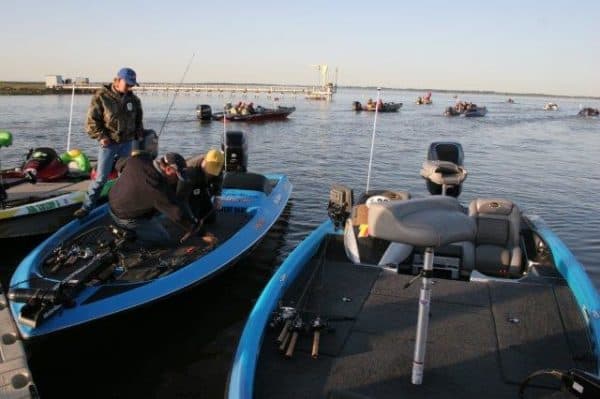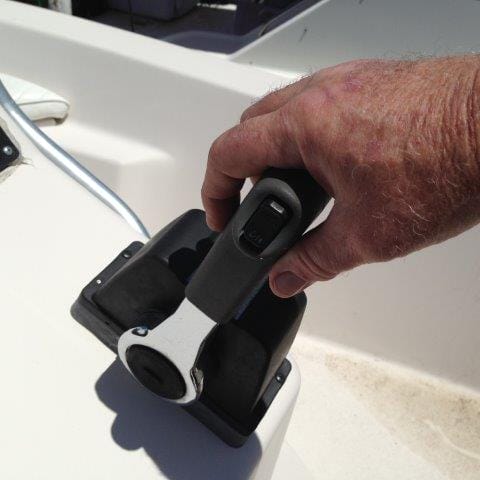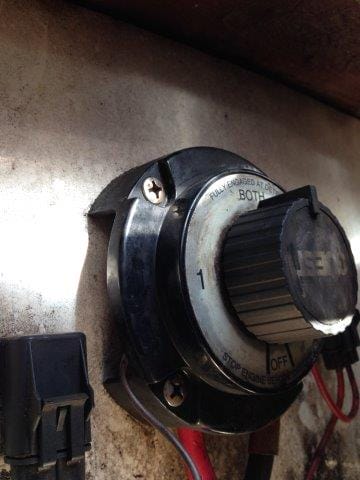by Bob McNally
There’s no worse feeling than getting the trailer backed down the ramp, turning the key, and realizing the long-awaited trip to the lake just hit a major speed bump.

All anglers owning boats encounter some difficulties at various times. Know how to deal with some of the common headaches to get back on the water and fishing quickly.
Own a boat long enough, and you can’t avoid at least some mechanical pitfalls from time to time. Most problems are simple headaches with which an angler or boater can easily and quickly fix.
Other boat and motor problems are more involved, and they can be expensive to remedy. Leave those major issues to a good mechanic, but any boat owner should know how to deal with the minor issues that commonly arise.
Here are some quick fixes for ordinary boating hassles, allowing anglers to get back to fishing fast.
Motor Won’t Start
This is a common problem, with many potential causes.
If a battery is dead at the start of a day and you have a battery-selector switch, make sure it’s turned to the “on” or “both” position. Some boats have such a switch for multiple batteries. This switch may have been set to off by a mechanic or someone who has borrowed your boat… someone who knows that boat lights or an aerator accidentally left on can drain hot batteries.
Another culprit for nothing happening with the motor when you turn the key is a disconnected kill switch. This happens often with fishermen who are running from place to place when a kill switch lanyard is connected to a belt loop or life jacket. Make sure the kill switch is properly connected.
Occasionally, an ignition switch becomes loose, and this can be quickly remedied by tightening the screws that hold it in place so the switch has proper electrical contact.

Be sure a motor throttle is in neutral before trying to starting the engine.
Also, be sure the motor throttle is in neutral. Sometimes a throttle is bumped from the neutral position while leaving and entering a boat. Wiggle the throttle to get it into neutral, and then try cranking.
Finally, never overlook the possibility that the fuel tank is out of gas. If the engine is trying to fire, which means it’s getting juice from the battery, don’t assume you have gas. Your fuel gauge may not be working properly. Check for gas.
Dying Boat Battery
If a boat motor grinds when trying to start, but the battery quickly withers and dies, at least you know the battery connections are making some contact. Still, check the wire leads from the motor to the battery and tighten them, since running bumpy water often can loosen battery nuts and wire connections.
If the nuts are corroded, scrape off the gunk with a knife or screwdriver—a wire brush is best. Then wipe the connections clean. Check the connections again for tightness. If possible, apply some silicone dielectric grease for battery terminal connection preservation, or spray on oil like WD40 to battery terminals to improve conductivity.
Dead Cranking Battery
If your cranking battery dies, trade it with another on-board battery that may be used for an electric motor or other electronics.
A set of battery jumper cables is valuable boating equipment, and they may be used for jumping a dead cranking battery with a charged one, or getting a jump from another boat if you can summon on-the-water help. A wise angler once said the two most essential pieces of emergency equipment that are too often left out of a boat are toilet paper and jumper cables.
Another possible solution to a dead battery may be a burned-out fuse. Know where your boat fuses are located, and be sure to have replacements of correct size and type. Be sure to have a fuse puller, too.
Fouled Prop
Fishing line commonly wraps around a boat motor propeller, whether it’s your big outboard or the electric trolling motor.
Monofilament line is bad enough, and braided line is even worse. Line can work deeply into a propeller seal, and it can ruin a motor. Get it out immediately and thoroughly before trying to run the motor propellor.
Weeds can also foul a prop. Most weeds, even tough-stem bulrushes and pads, normally can be removed by hand after a motor has been hauled up to expose the prop. In the extreme cases, and certainly with fishing line, a knife or scissors will be needed to free a prop from obstructions.
Sometimes simply pulling on an end of a fishing line removes it from a propeller. The motor may need to be put in neutral for a prop to spin freely as line is pulled.
With a big outboard, occasionally fouled weeds or line are well out of reach of anglers in a boat. If you can reach shore by electric motor or paddle, work the boat into the shallows, so you can get out and remove fouled material.
In deep, open water, it may be easiest to free a big motor propeller from in the water. While wearing a life preserver, ease overboard and have a look at the prop. Sometimes using a diver’s face mask, snorkel and fins make prop cleaning simple.

If a battery is dead at the start of a day and you have a battery selector switch, make sure it’s turned to the “on” or “both” position.
Engine Overheats
Never ignore an engine that is overheating. A boater should learn to instinctively glance at the temperature gauge when running the big motor. If you let the motor overheat, it can ruin an otherwise perfectly good engine.
Check the water intake on the motor near the propeller. Is it blocked? Usually it is simply weeds, lily pad stems or a plastic bag blocking water flow, which is needed by a motor to cool it.
Occasionally, especially on smaller outboards, the water outflow nozzle at the bottom-rear of the cowling can become plugged, and it must be opened for clean water flow. This and the intake ports can be cleared of debris with heavy single-gauge wire, something like No. 14 electrical wire,or even with heavy monofilament line that can be worked into the outflow nozzle and intake port.
Steering Locked
Most modern boats with steering wheels are hydraulic, and if the wheel won’t turn, or the motor won’t react to the wheel, it’s likely low on fluid. Add some fluid, and check for a leak, which may be short-term repaired with duct tape and chewing gum—no kidding.
Some steering systems require grease, and there are nipple fittings on the motor that should be greased periodically.
Everyone who heads out on the water should have the know-how to fix simple, common boat and motor problems.
The Union Sportsmen’s Alliance website is designed to provide valuable articles about hunting, fishing and conservation for members of AFL-CIO affiliated labor unions and all sportsmen and sportswomen who appreciate hunting and fishing and want to preserve our outdoor heritage for future generations. If you would like your own story and experience from the outdoors to be considered for our website, please email us at [email protected].



